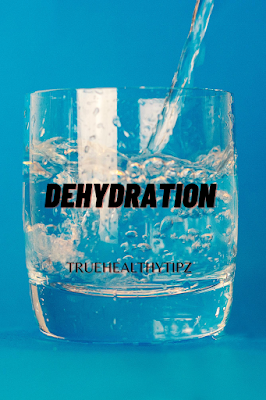Dehydration is Bad. Water is Your Friend.
What is Dehydration?
At the point when the body has less water than it needs to work ideally. Happens when the body's yield is more noteworthy than in-take. A lessening of 2% or more can bring about physical, visual, or intellectual changes.
What Does Your Body Use Water For?
* Body temperature guideline
* Digestion
* Metabolic procedures
* Respiration
* Lubrication of joints
* Nutrient distribution
1. Body temperature guideline
Water has the ability to manage the inside temperature of the body because of the outer temperature. Sweat is the principle implies by which water forestalls the human body overheating when the temperature outside it is very high. The vanishing of sweat brings lost calories as heat,
2. Digestion
Drinking water during or after a dinner really helps absorption. Water is basic for acceptable wellbeing. Water and different fluids help separate food with the goal that your body can assimilate the supplements. Water likewise relax stool, which forestalls clogging.
3. Metabolic procedure
Water conveys supplements to cells and helps expel poisons and metabolic waste from the cells also. Catabolic responses separate food and transform it into vitality. These responses separate substances, for example, starches and proteins and transform them into glucose.
4. Respiration
Drinking water assists with diminishing the bodily fluid coating your aviation routes and lungs. Drying out can make that bodily fluid thicken and get clingy, which hinders by and large breath and makes you more powerless to sickness, sensitivities and other respiratory issues.
5. Lubrication of joints
Water assists with keeping your joints greased up and adaptable; the Synovial liquid that legitimately greases up your joints is made up basically of water. This liquid diminishes the rubbing among joints and assists with keeping up solid tissue and joints.
6. Nutrients distribution
Water is basic for cell homeostasis since it transports supplements to cells and expels squanders from cells. It is the medium where all vehicle frameworks work, permitting trades between cells, interstitial liquid and vessels.
Facts You Should Know:
Dehydration is the most widely recognized liquid and electrolyte issue in every older grown-up. Water makes up about half of the complete bodyweight. Water must be replaced day by day in light of the fact that the body can't store it. Passing rates are multiple times higher for dried outpatients. Hospitalization costs for dried outpatients are more than $1 billion every year in the United States. Ladies are more inclined to drying out. Prescriptions, for example, diuretics, intestinal medicines, and narcotics can cause drying out. Drinking liquor or caffeine can add to drying out.
Signs of Dehydration:
Mild Symptoms
Dry, sticky mouth and tongue
Lightheaded or dizzy
Weakness and headache
Lethargy
Moderate Symptoms
Confused or irritable
Stop sweating
Dark yellow urine
Decreased urine output
Blood pressure lower than usual
Increased heart rate
Severe Symptoms
Fainting or unconsciousness
Disoriented
Onset of fever
How Much Water Should You Drink Each Day?
0.46 oz of water per pound of body weight
To calculate: 0.46 x weight in lbs =
Recommended # of ounces per day
For example: 120 lb person
0.46 x 120 lbs = 55.2 oz of water
Easy Ways You Can Drink More Water:
1. Drink from a fun straw
2. Carry a water bottle with you
3. Add lemon, lime, orange or favorite fruit
4. In winter, drink hot water with mint leaves or lemon and honey
5. Set an alarm to remind you when to drink more fluids
6. Have a glass of water before and after each meal







No comments:
Post a Comment